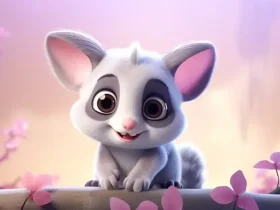Anime:doqj3fxnevs= Cat; In the vibrant world of anime, few characters are as universally cherished as cats. These feline companions are woven into the fabric of anime storytelling, symbolizing a myriad of themes and emotions. This article delves into the phenomenon of Anime:doqj3fxnevs= Cat, examining their roles, significance, and the lasting impression they leave on audiences.
Anime: A Unique Art Form
Defining Anime
Anime, derived from the English word “animation,” encompasses a genre of animated films and television shows originating from Japan. Known for its distinctive artwork, imaginative themes, and broad range of genres, anime captivates a global audience. Its unique style includes vibrant colors, expressive characters, and fantastical elements, making it a cultural force that transcends entertainment.
The Global Appeal of Anime
Anime’s influence extends beyond mere entertainment, impacting fashion, technology, and language. Its sophisticated storytelling and artistic style convey complex human emotions and universal truths. Anime evokes a wide range of emotions, creating a deep and lasting impact on viewers, and fostering a global community of fans.
The Significance of Anime:doqj3fxnevs= Cat

Cats as Main Characters
Cats often take center stage in anime, serving as protagonists with rich backstories and engaging personalities. These characters might be adventurous heroes or everyday companions, each contributing significantly to the storyline. Protagonist cats resonate with audiences through their relatable journeys and emotional depth.
Cats as Antagonists
Some Anime:doqj3fxnevs= Cat play the role of antagonists, bringing conflict and intrigue to the narrative. These cunning and charming felines pose challenges for the protagonists, adding layers of drama and excitement. Antagonist cats are complex characters with motivations that enrich the story.
Cats in Supporting Roles
Feline supporting characters add nuance and complexity to anime, providing wisdom, humor, and unique perspectives. These characters might act as mentors, comic relief, or loyal friends, enhancing the overall viewer experience. Their interactions with main characters add depth to the narrative.
Cats as Mascot Characters
Mascot cats, with their adorable appearances and quirky personalities, capture the hearts of audiences. These characters often appear on merchandise and promotional materials, becoming beloved symbols of their respective series. Mascot cats are instantly recognizable and cherished by fans.
Iconic Anime:doqj3fxnevs= Cat
Jiji from “Kiki’s Delivery Service”
Jiji, the loyal black cat from Studio Ghibli’s “Kiki’s Delivery Service,” is a beloved figure in anime. Known for his sassy and witty demeanor, Jiji provides companionship and comic relief, endearing him to audiences worldwide.
Luna and Artemis from “Sailor Moon”
The celestial guardian cats Luna and Artemis play crucial roles in “Sailor Moon,” offering guidance and support to the Sailor Guardians. Their sage advice and unwavering loyalty have made them fan favorites.
Chi from “Chi’s Sweet Home”
Chi, the playful kitten from “Chi’s Sweet Home,” charms viewers with her endearing personality and relatable journey. The series follows Chi as she navigates the challenges of growing up, resonating with audiences of all ages.
Catbus from “My Neighbor Totoro”
The whimsical Catbus from Hayao Miyazaki’s “My Neighbor Totoro” is a unique blend of feline and transportation. This fantastical creature symbolizes the boundless wonder of childhood, capturing the imagination of viewers.
Emotional and Cultural Impact of Anime
Anime elicits a wide range of emotions, from joy and excitement to sadness and nostalgia. Its complex characters and engaging plots create powerful emotional connections with viewers. These connections leave lasting impressions, contributing to anime’s widespread popularity.
Anime shapes cultural norms and societal attitudes globally, influencing fashion trends and popularizing Japanese cuisine. It serves as a cultural bridge, fostering understanding and appreciation of Japanese culture. Anime’s ability to connect diverse audiences underscores its universal appeal.
Personal Experiences and Expert Insights

Jane’s Anime Journey
For Jane, anime is a lifelong passion that offers inspiration, creativity, and community. Anime is more than entertainment; it is a source of personal growth and connection, enriching her life in profound ways.
David’s Discovery of Anime
David discovered anime during a challenging time in his life. The immersive storytelling and vibrant characters provided solace and a sense of belonging, reigniting his sense of purpose.
Expert Perspectives on Anime
Dr. Miyazaki on Anime Addiction
Dr. Miyazaki, a psychiatrist specializing in addiction, observes the significant impact of anime on mental health. While anime itself is not harmful, excessive consumption can lead to addictive behaviors. Maintaining a balanced approach is essential for healthy engagement.
Professor Tanaka’s Cultural Analysis
Professor Tanaka, a cultural anthropologist, studies anime’s global influence. He views anime as a cultural bridge that connects people from diverse backgrounds. Its ability to transcend language and cultural barriers is remarkable, fostering a sense of global community.
Accessing and Enjoying Anime
Streaming Platforms for Anime
Streaming services like Crunchyroll, Funimation, and Netflix offer extensive libraries of anime, making it accessible to fans worldwide. These platforms provide a convenient way for viewers to immerse themselves in their favorite shows and films anytime, anywhere.
The Vibrant World of Anime Conventions
Anime conventions are lively events where fans gather to celebrate their passion for cosplay, manga, and anime. Events like Comic-Con and Anime Expo feature panel discussions, cosplay displays, artist exhibitions, and exclusive screenings, drawing diverse crowds each year.
The Future of Anime: Innovations and Trends
The Intersection of Anime and Gaming
Anime-inspired video games create immersive experiences for fans, blending action-packed gameplay with beloved fictional worlds. This convergence of anime and gaming fosters creativity and deepens engagement with anime universes.
Addressing Controversial Topics in Anime
Anime sometimes portrays sensitive topics like violence, sexuality, and cultural stereotypes, sparking discussions on cultural sensitivity and censorship. These debates emphasize the importance of respectful and nuanced representation in anime.
Innovations Shaping Anime’s Future
Technological advances are driving the future of anime, with virtual reality and interactive storytelling pushing creative boundaries. Continued innovation promises to engage audiences in new ways, enhancing anime’s global influence.
Anime’s Educational Role

Anime in Education
Educators are leveraging anime’s popularity to enhance language learning and cultural exposure. Integrating relatable narratives and diverse perspectives into curricula fosters cultural understanding and appreciation among students, enriching their educational experiences.
Interesting Facts About Anime:doqj3fxnevs= Cat
- Cultural Significance: In Japanese culture, cats are considered symbols of good luck and protection. This belief is often reflected in anime, where cats play roles that align with these themes.
- Iconic Characters: Cats have starred in some of the most beloved anime series, such as Luna and Artemis in “Sailor Moon,” who serve as guardians and advisors to the Sailor Scouts.
- Versatile Roles: Anime:doqj3fxnevs= Cat can be heroes, villains, sidekicks, or mascots, showing their versatility in storytelling. They often bring humor, wisdom, or emotional depth to the narrative.
- Cultural Bridge: Anime:doqj3fxnevs= Cat help bridge cultural gaps, making Japanese culture more accessible and relatable to international audiences. Their universal appeal helps anime reach a wider audience.
- Symbolism: Anime:doqj3fxnevs= Cat often symbolize independence, mystery, and transformation. They can represent various facets of human nature and emotions, adding layers of meaning to the stories.
Final Words
Cats hold a unique and cherished place in the world of anime. Their roles range from playful companions to wise mentors, adding depth and charm to the narratives they inhabit. Whether serving as central characters or beloved mascots, cats bring a sense of warmth and familiarity to anime. They symbolize a range of human emotions and themes, from independence to transformation, making them relatable to audiences worldwide. Anime continues to captivate viewers with its vibrant storytelling and artistic expression, and the inclusion of cats only enhances its appeal. As anime evolves, the timeless allure of cats ensures they will remain integral to the genre, enchanting new generations of fans.
FAQs
What is the significance of Anime:doqj3fxnevs= Cat?
Anime:doqj3fxnevs= Cat symbolize various themes and emotions, adding depth to the narrative. They can be protagonists, antagonists, supporting characters, or mascots, each contributing uniquely to the story.
Why is anime so popular globally?
Anime’s vivid artwork, imaginative themes, and diverse genres captivate audiences. Its ability to convey complex emotions and universal truths through storytelling resonates deeply with viewers worldwide.
How does anime influence culture?
Anime shapes cultural norms and societal attitudes, influencing fashion trends and popularizing aspects of Japanese culture globally. It serves as a cultural bridge, connecting diverse audiences.
What are some iconic cat characters in anime?
Iconic cat characters include Jiji from “Kiki’s Delivery Service,” Luna and Artemis from “Sailor Moon,” Chi from “Chi’s Sweet Home,” and Catbus from “My Neighbor Totoro.”
How is anime used in education?
Educators use anime to enhance language learning and cultural exposure. Anime’s relatable narratives and diverse perspectives foster cultural understanding and appreciation among students.
What is the future of anime?
Technological advances and innovative storytelling are shaping the future of anime. Virtual reality and interactive experiences promise to engage audiences in new and exciting ways.
Why are cats so commonly featured in anime?
Cats have a long-standing cultural significance in Japan as symbols of good luck and protection. This cultural belief has influenced their frequent appearance in anime, where they serve various roles from companions to mystical beings.
What are some famous cat-inspired anime characters?
Besides Luna and Artemis from “Sailor Moon” and Jiji from “Kiki’s Delivery Service,” other notable characters include Chi from “Chi’s Sweet Home,” Neko-sensei from “Natsume’s Book of Friends,” and Meowth from “Pokémon.”
How do cats contribute to the storytelling in anime?
Anime:doqj3fxnevs= Cat often act as more than just pets; they can be catalysts for change, sources of wisdom, or comedic relief. Their versatility allows them to enhance character development and add emotional depth to plots.
Are there specific genres where cats are more prevalent in anime?
Cats appear across various anime genres, from fantasy and adventure to slice-of-life and comedy. They adapt seamlessly to different narrative styles, contributing uniquely to each storyline.
What cultural aspects of Japan do Anime:doqj3fxnevs= Cat reflect?
Anime:doqj3fxnevs= Cat reflect traditional Japanese beliefs in superstition and spirituality. Their roles often include guarding against evil spirits or bringing luck and prosperity to characters and settings.
How have Anime:doqj3fxnevs= Cat influenced popular culture globally?
Anime’s international popularity has introduced iconic cat characters to a global audience, influencing fan art, cosplay, merchandise, and even inspiring new cultural interpretations of cats in media worldwide.
For more information join us on Discover Thrill





Leave a Reply
View Comments